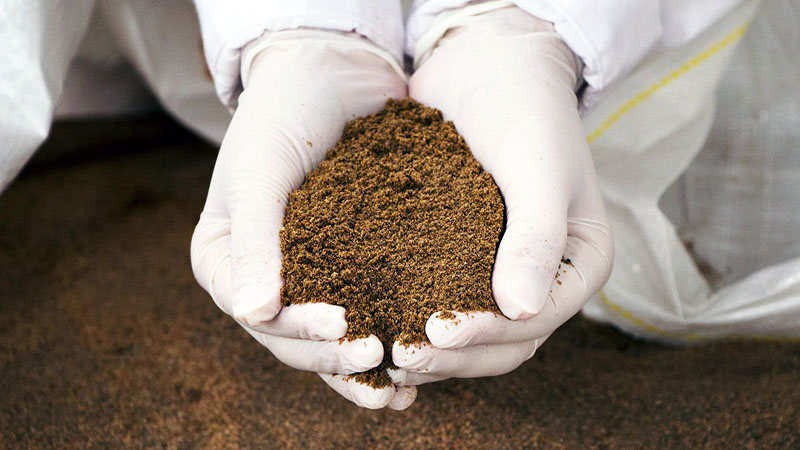Exclusive content

The black soldier larvae meal (BSFLM) has emerged as a key player in the quest to find sustainable protein sources for shrimp nutrition. Its potential benefits are widely recognized, but challenges related to availability and pricing have hindered its widespread adoption in animal feeds.
The Research
A recent study delved into the growth and economic performance of post-larval (PL) P. vannamei when fed nursery diets with varying levels of fish meal (FML) replacement with BSFLM. The study examined replacement percentages of 0%, 25%, 50%, 75%, and 100%.
The study involved 102,647 shrimp at PL15 with an average body weight of 2.7 ± 0.2 mg, reared for 42 days in controlled conditions. Notably, final shrimp survival, daily weight gain, and apparent feed intake remained unaffected by dietary treatments.
The research highlighted that the highest yield and final body weight were achieved when FML was replaced with BSFLM at 50% and 75%, with the lowest outcomes observed at 0% replacement.
Economic Viability
An essential aspect of this study was the assessment of the economic viability of BSFLM as an alternative to FML. The return on investment (ROI) for BSFLM was found to be favorable when compared to FML, regardless of the replacement level.
At a price of USD 2.00/kg, BSFLM proved to be a cost-effective option up to 50% replacement. At 75% replacement, ROI remained competitive within a price range of 2.00 up to 3.04 USD/kg. However, at full replacement, ROI saw a significant drop when BSFLM prices exceeded 2.50 USD/kg.